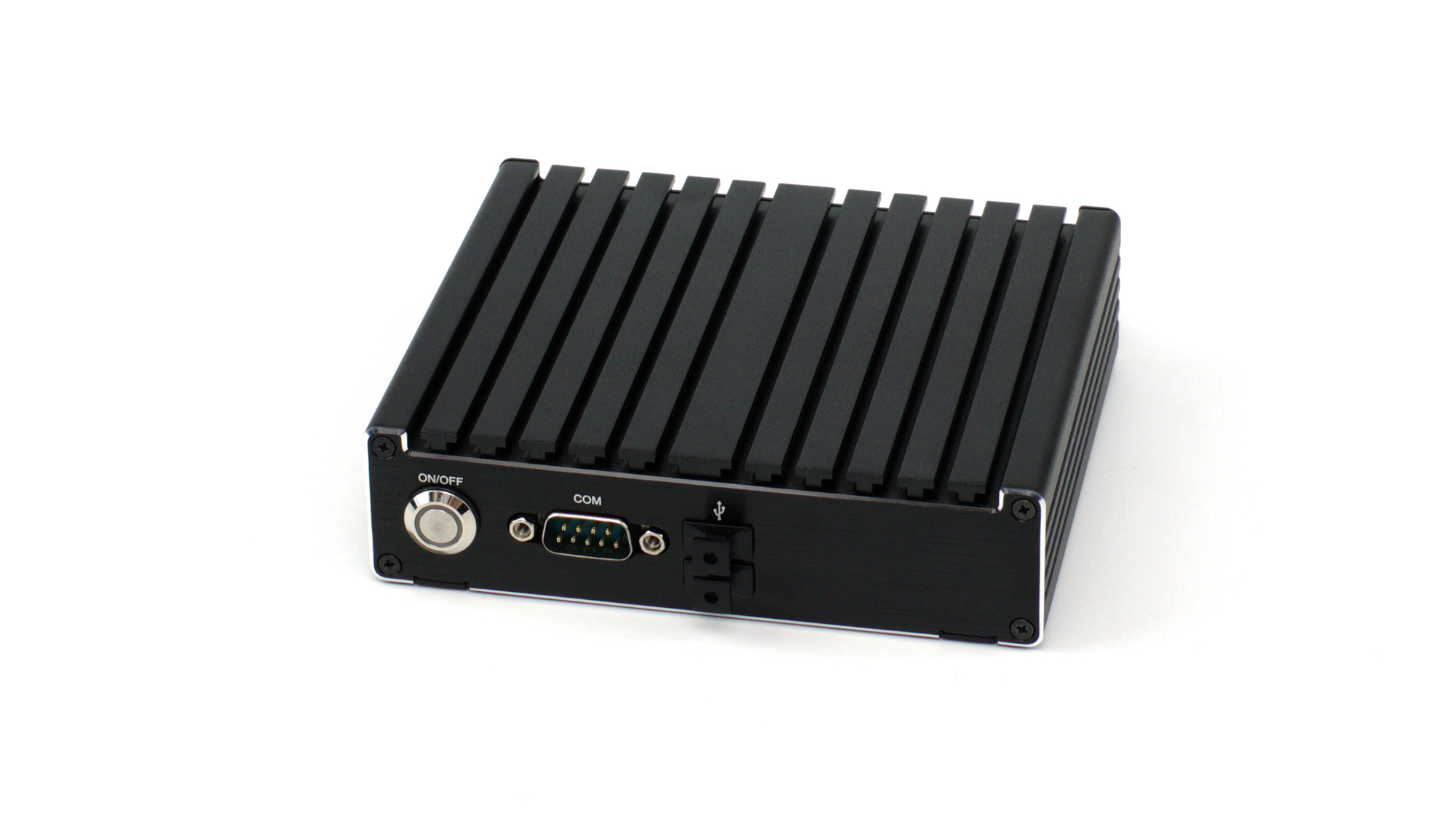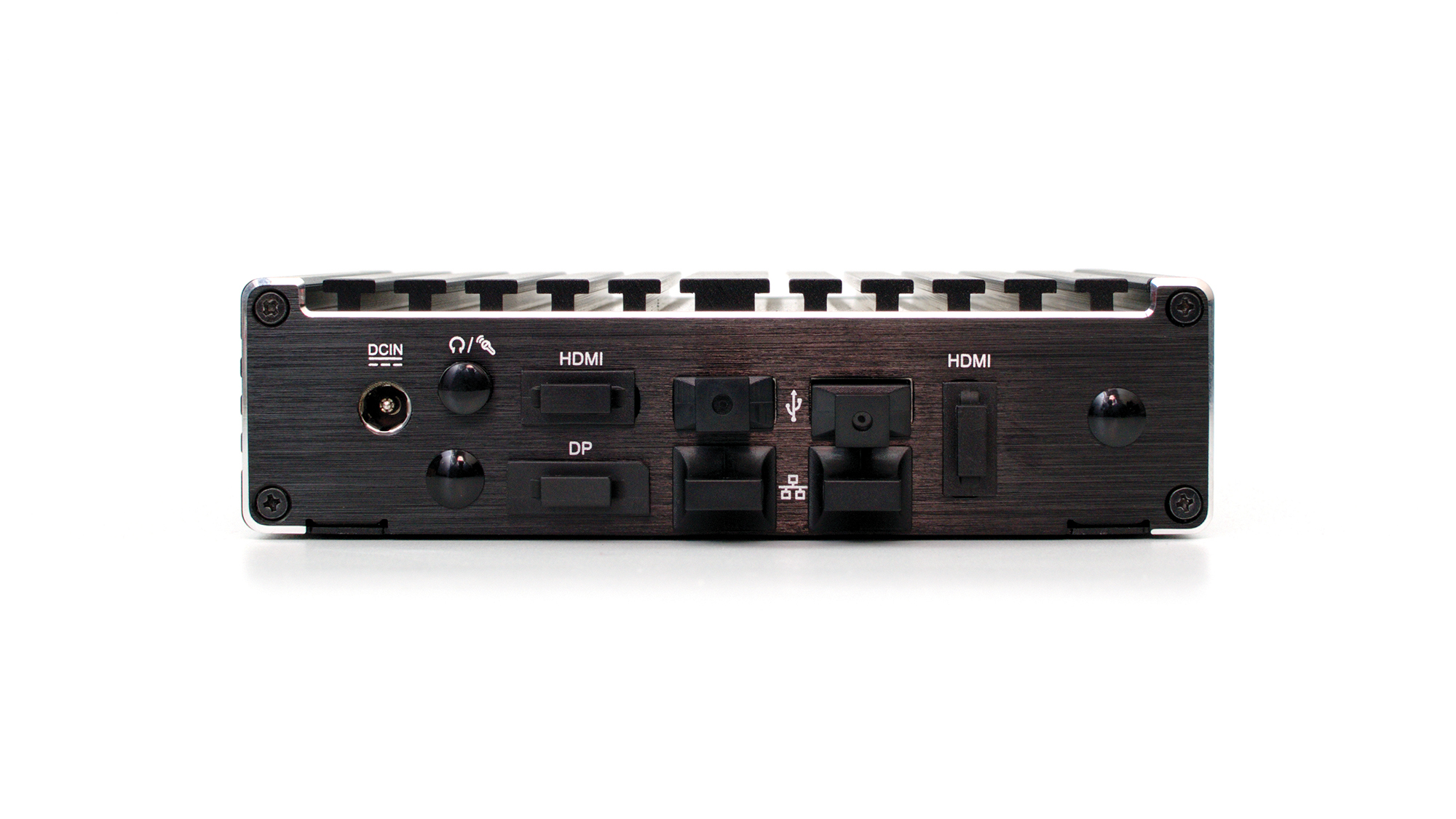Jetway JBC420 review: Roll your own networking gear
Designed with network appliance use in mind, the Jetway JBC420 is a power-sipping marvel


The Jetway JBC420 is a unique little machine that's next to useless as a mini PC but absolutely outstanding as the basis for a homebrew networking appliance for tasks like routing or firewall management.
-
+
Outstanding power consumption; Small and light; Twin Gigabit Ethernet ports; Great value
-
-
Performance too poor for desktop use
Looking at the Jetway JBC420, you might reasonably assume it's a mini PC, in the style of the Shuttle DH370 or the QuietPC AMD Sentinel Fanless, but you'd only be half right. It is technically capable of being used as a desktop device - it's got full support for Windows 10 and all the necessary ports - but it's actually designed to be used as a network appliance.
The idea is to provide a low-cost hardware platform on top of which businesses (or dedicated networking hobbyists) can install their own network management software to handle traffic routing, network security or packet analysis duties.
The specifications tell you all you need to know about the Jetway's wheelhouse: two network ports, a small SSD, 4GB of DDR3 memory and a low-end Celeron processor combine to produce a system that struggles as a general-purpose desktop - a theory borne out by its dismal performance in every compute benchmark we ran - but what it does have are dual Intel Gigabit Ethernet ports and a combined RS232/422/485 serial port.
Coupled with its compact size, being one of the smallest and lightest systems we've seen short of the Raspberry Pi 4, this makes the Jetway JBC420 a great choice for a roll-your-own router, firewall or gateway project. The machine runs silently, using the chassis as its heatsink, and its power draw at idle is a mere 5.9W. Even at load, the Jetway drew an absolute peak of 13.1W - less than some rival systems at idle. It also boasts the most mounting options of any machine in its category, coming as standard with VESA, wall and DIN rail mounting hardware.

The price, too, is more than reasonable - although the headline figure is with the system being supplied without an OS, shaving north of 100 off compared to most of its rivals. Throw a Linux or BSD-based operating system on there and you've got a fully custom network appliance for little more than the cost of a high-end consumer off-the-shelf equivalent. Elsewhere, the four processor cores and presence of AES-NI cryptographic acceleration instructions make up for the Celeron's relative lack of overall compute performance.
Only the warranty comes as a slight disappointment, but the low cost of the system and free build service helps soften the blow: while two years of return-to-base service is above the industry average, it would have been nice to see it matching the three years offered by some of its competitors.
The Jetway JBC420 is a fairly unique device, which makes it somewhat hard to categorise; it's not really a security gateway or firewall, but it's not really a mini PC, either. What it is, is a light, low-cost and compact block of basic compute resource that's perfect for projects where you need the flexibility of a Raspberry Pi-style platform coupled with just a little more processing power.
Sign up today and you will receive a free copy of our Future Focus 2025 report - the leading guidance on AI, cybersecurity and other IT challenges as per 700+ senior executives
It's a niche use-case to be sure, but it's one this machine absolutely nails, and you want to build your own network appliance, there's really nothing else like it.
Verdict
The Jetway JBC420 is a unique little machine that's next to useless as a mini PC but absolutely outstanding as the basis for a homebrew networking appliance for tasks like routing or firewall management.
| Processor | Intel Core i5-7260U |
| RAM | 4GB DDR4-2400 SODIMM |
| Front USB ports | 2 x USB-A 3, |
| Rear USB ports | 2 x USB-A 3 |
| Graphics card | Intel HD Graphics 400 |
| Storage | 500GB, M.2 NVMe/SATA, 4 x SATA |
| Operating system | None |
| Warranty | 2yr RTB |
Gareth Halfacree is an experienced tech journalist and IT professional, and has been writing since 2006. In addition to contributing article for ITPro, Gareth has been featured in publications such as PC Pro, Techmeme, The Register, The MagPi, and Tom’s Hardware.
In addition to his digital articles, Gareth is the author of several best-selling books. These include the Raspberry Pi User Guide, an essential text for those looking to get started with their Raspberry Pi, as well as The Official Raspberry Pi Beginner’s Guide. Gareth also wrote the Official BBC micro:bit User Guide, a comprehensive guide to setting up the pocket-sized computer, learning to code on it, and even creating your own hardware addons.
-
 Qualcomm the data center with $2.4 billion Alphawave Semi acquisition
Qualcomm the data center with $2.4 billion Alphawave Semi acquisitionNews The move sees Qualcomm absorb Alphawave Semi’s portfolio of custom silicon, high-speed connectivity solutions, and chiplets
By Daniel Todd Published
-
 ‘If software development were an F1 race, these inefficiencies are the pit stops that eat into lap time’: Why developers need to sharpen their focus on documentation
‘If software development were an F1 race, these inefficiencies are the pit stops that eat into lap time’: Why developers need to sharpen their focus on documentationNews Poor documentation is a leading frustration for developers, research shows, but many are shirking responsibilities – and it's having a huge impact on efficiency.
By Ross Kelly Published
-
 OpenAI says GPT-5.2-Codex is its ‘most advanced agentic coding model yet’ – here’s what developers and cyber teams can expect
OpenAI says GPT-5.2-Codex is its ‘most advanced agentic coding model yet’ – here’s what developers and cyber teams can expectNews GPT-5.2 Codex is available immediately for paid ChatGPT users and API access will be rolled out in “coming weeks”
By Ross Kelly Published


